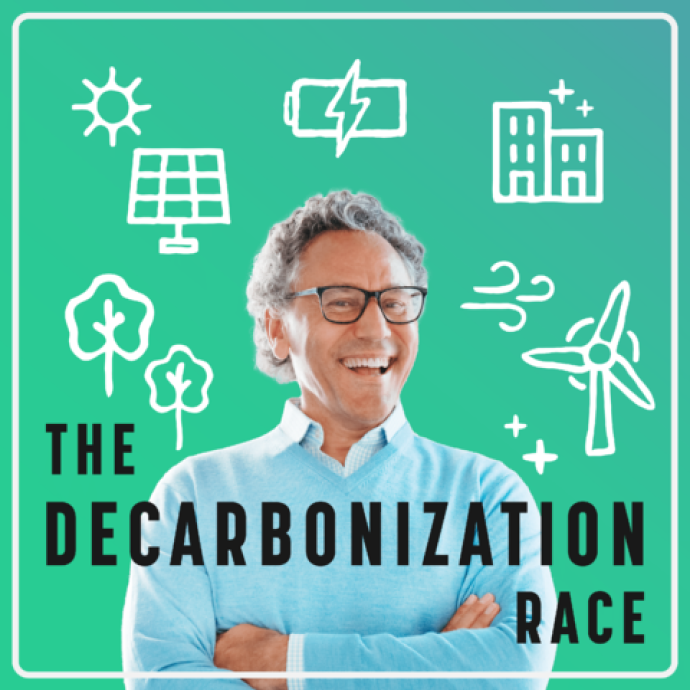For more resources to help you lead the pack in the most important race of our lifetime, subscribe to our newsletter.
Latest Episodes
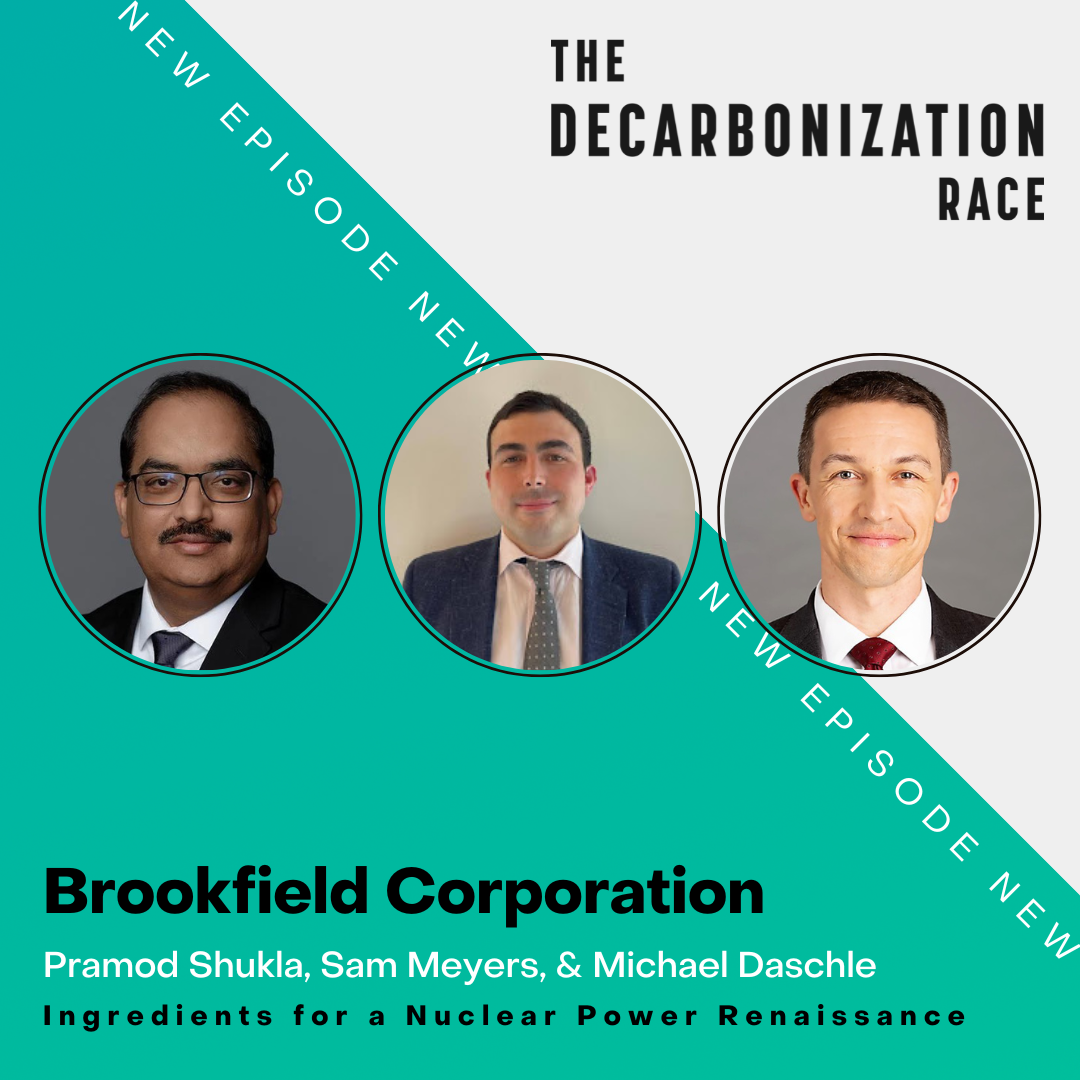
Ingredients for a Nuclear Power Renaissance with Brookfield All-Star Panel
In this episode, host Lincoln Payton brings together a panel from investment giant Brookfield Corporation to explore the transformative role that nuclear energy plays in the pursuit of a net-zero future, particularly in the private sector investment landscape. Joining Lincoln for this episode are Pramod Shukla, Managing Director in Brookfield’s Private Equity Group; Sam Meyers, Senior Vice President at Brookfield Asset Management; and Mike Daschle, SVP of Sustainability for Brookfield Properties.
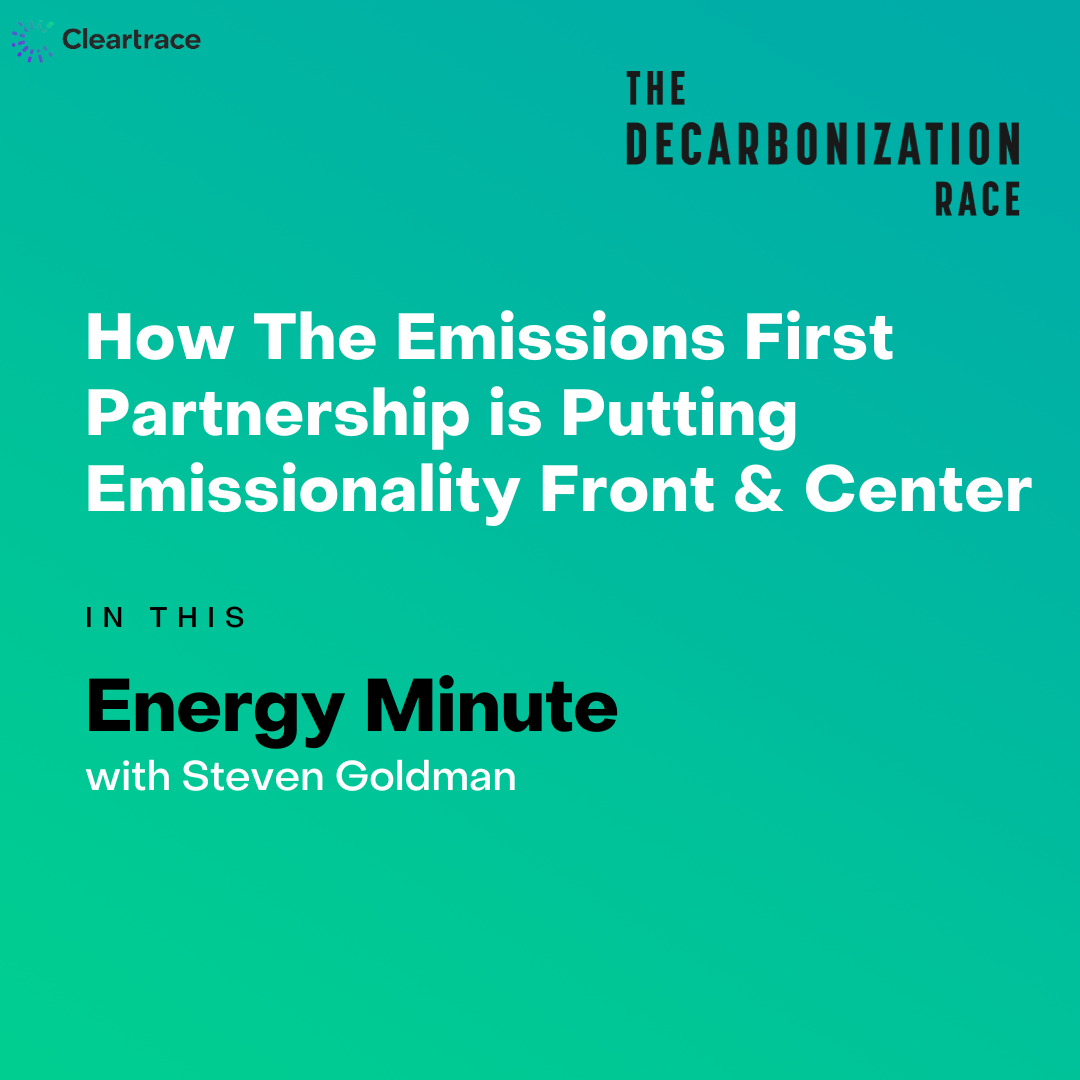
Energy Minute: How The Emissions First Partnership is Putting Emissionality Front & Center
Following a riveting conversation with Killian Daly of EnergyTag about hourly matching in carbon accounting, this Energy Minute looks at the work of the Emissions First partnership - a group of companies including Akamai, Meta, General Motors and Salesforce - and its collective focus on carbon matching in clean energy procurement. In this episode, Cleartrace’s Steven Goldman delves into the difference between hourly matching and carbon matching approaches, and what principles the partnership members are applying in their work. He also explores the evolution from traditional electricity purchasing strategies and discusses how aligning with this approach might boost companies' carbon impacts of their energy procurement.
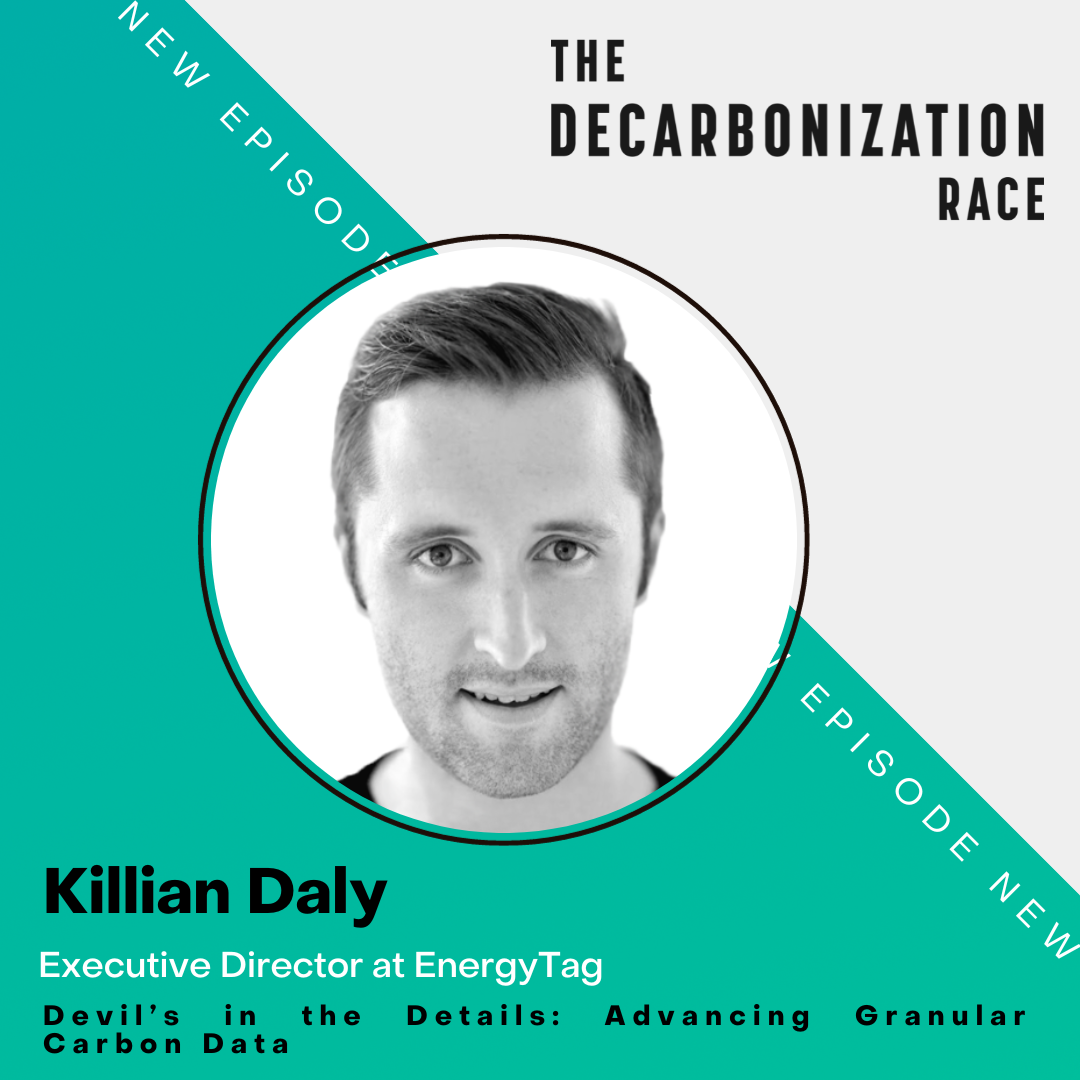
Devil’s in the Details: Advancing Granular Carbon Data with EnergyTag’s Killian Daly
Decarbonization has diversified from simply vanilla to 31 flavors, where a range of goals and strategies are being adopted as companies work to reduce carbon emissions and other environmental impacts. One key strategy that’s emerged has been time-matched procurement of electricity, ensuring that the electricity that’s sourced corresponds to when and how much electricity is used onsite. Granular energy attribute certificates (EACs), which add transparency by including information on where and when energy is sourced, are crucial to delivering 24/7 carbon-free energy matched on the hour. On this episode, host Lincoln Peyton talks with EnergyTag Executive Director Killian Daly about how the organization is leading the charge for granular certificates, including advising governments around the world on their use and how they can ensure commodities like hydrogen are produced sustainably. They also discuss the complex world of voluntary standards, market impacts, policy implementation, and the ambitious mission of EnergyTag, which is backed by big names like Google and Microsoft. As EnergyTag champions global adoption of more granular carbon accounting standards, Killian will also shines a light on his role in harmonizing these efforts through leading the Carbon Data Specification initiative at the Linux Foundation.
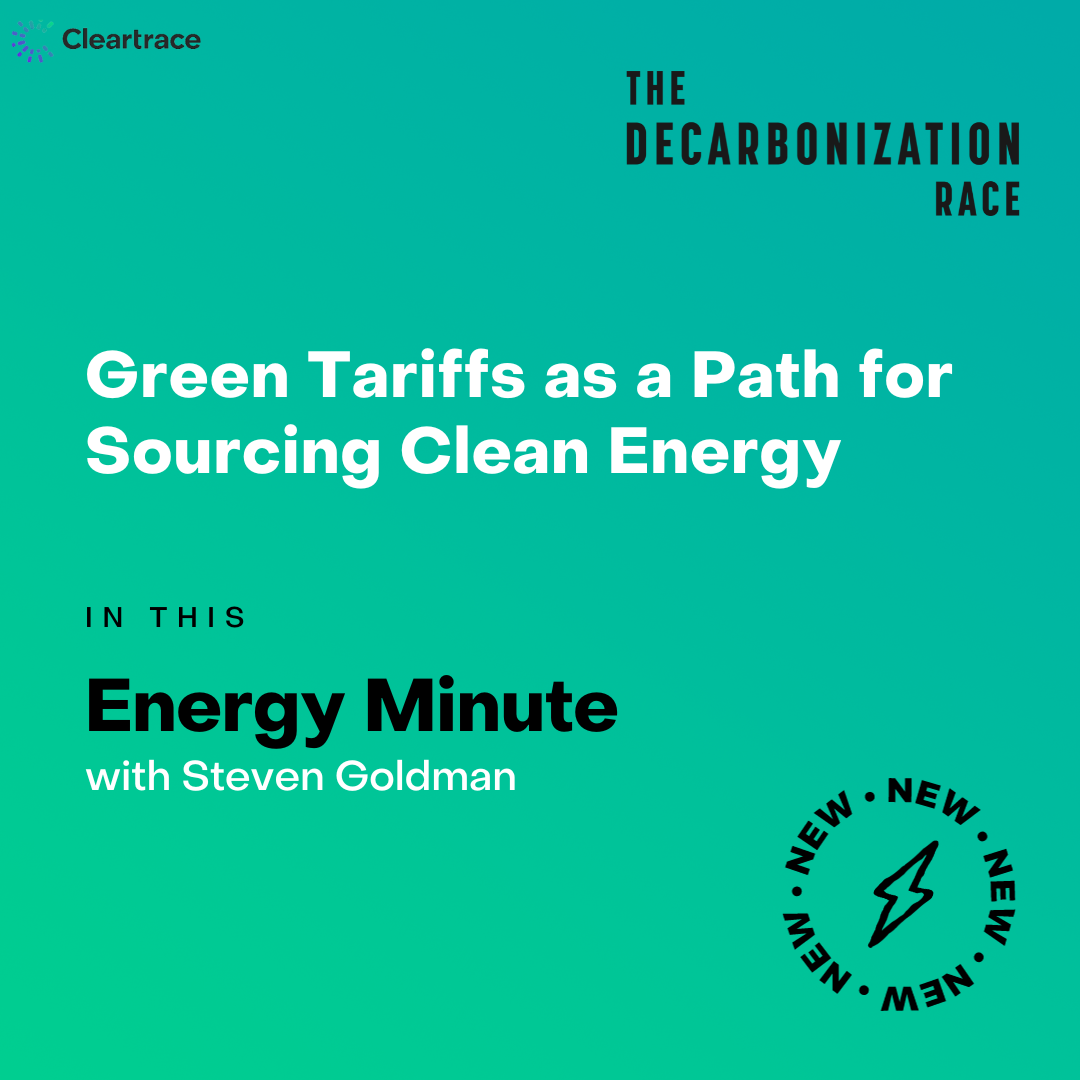
Energy Minute: Green Tariffs as a Path for Sourcing Clean Energy
On this Energy Minute mini-sode, Steven Goldman explores the world of “green tariffs,” voluntary utility programs that enable eligible customers to buy the “bundled” energy and associated Renewable Energy Certificates (RECs) from renewable energy projects. These programs are typically offered by local electric utilities and approved by state public utility commissions (PUCs). He explains the main types of green tariffs and how they are an important tool for companies seeking to procure clean energy, as they offer a number of benefits, including predictability, reduced upfront costs, and brokerless access to clean energy. We'll discover the benefits of participating in these programs, including access to clean energy without high upfront costs and the ability to reduce operational carbon emissions. Join us as we uncover some of the more innovative green tariff programs and how utilities are working towards meeting the needs of companies in their clean energy sourcing.
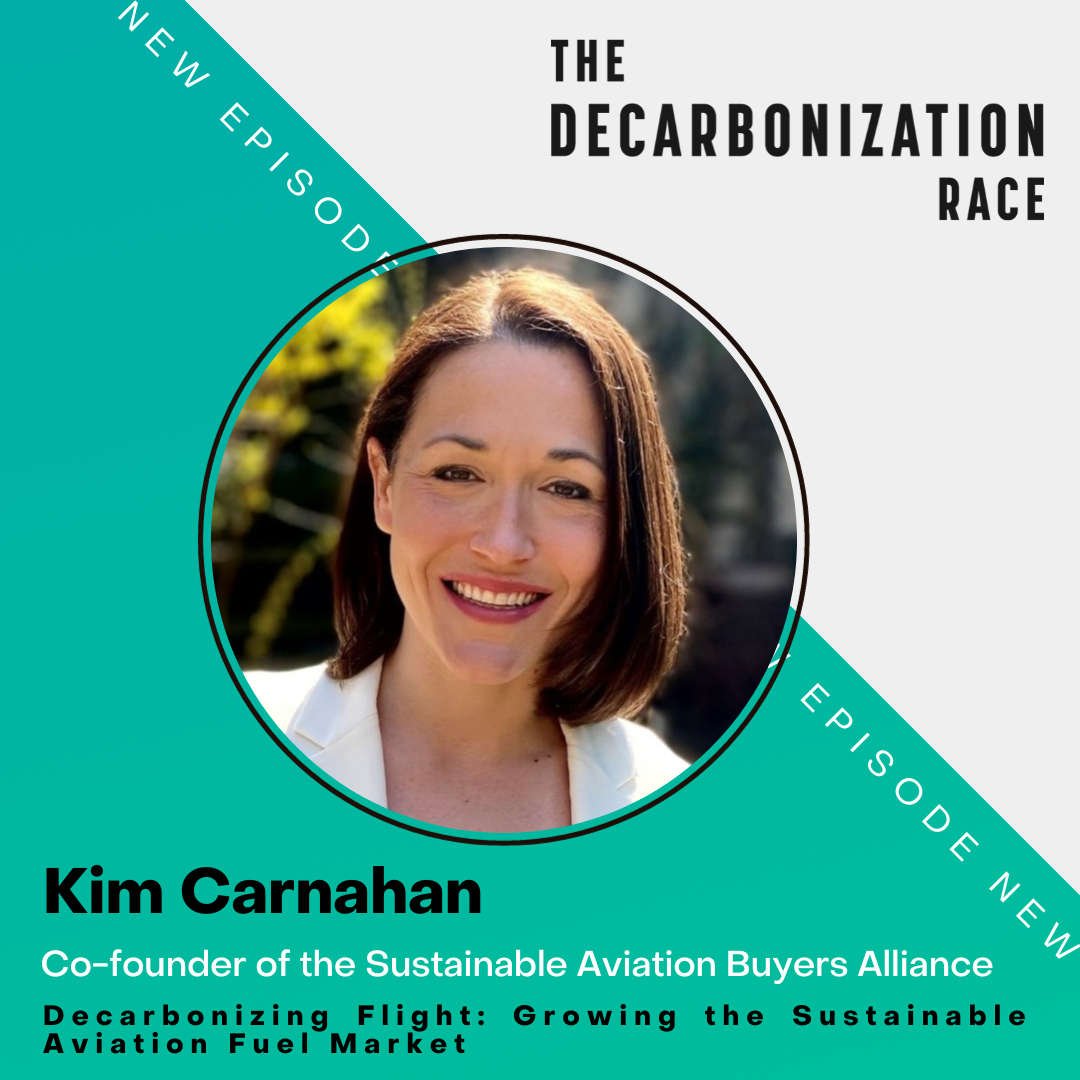
Decarbonizing Flight: Growing the Sustainable Aviation Fuel Market with Kim Carnahan
On this episode of The Decarbonization Race, new co-host Steven Goldman takes flight into the world of Sustainable Aviation Fuel or SAF – including the market currently being built for it, the range of ways SAF is being produced, and what structures need to be in place to make sure SAF is not only affordable but provably more sustainable than conventional fuels. He's joined by Kim Carnahan, founder and CEO of Neoteric Energy & Climate. Kim co-founded the Sustainable Aviation Buyers Alliance (SABA), an industry body bringing together a range of NGOs, airlines and other companies investing in SAF supply and technologies.
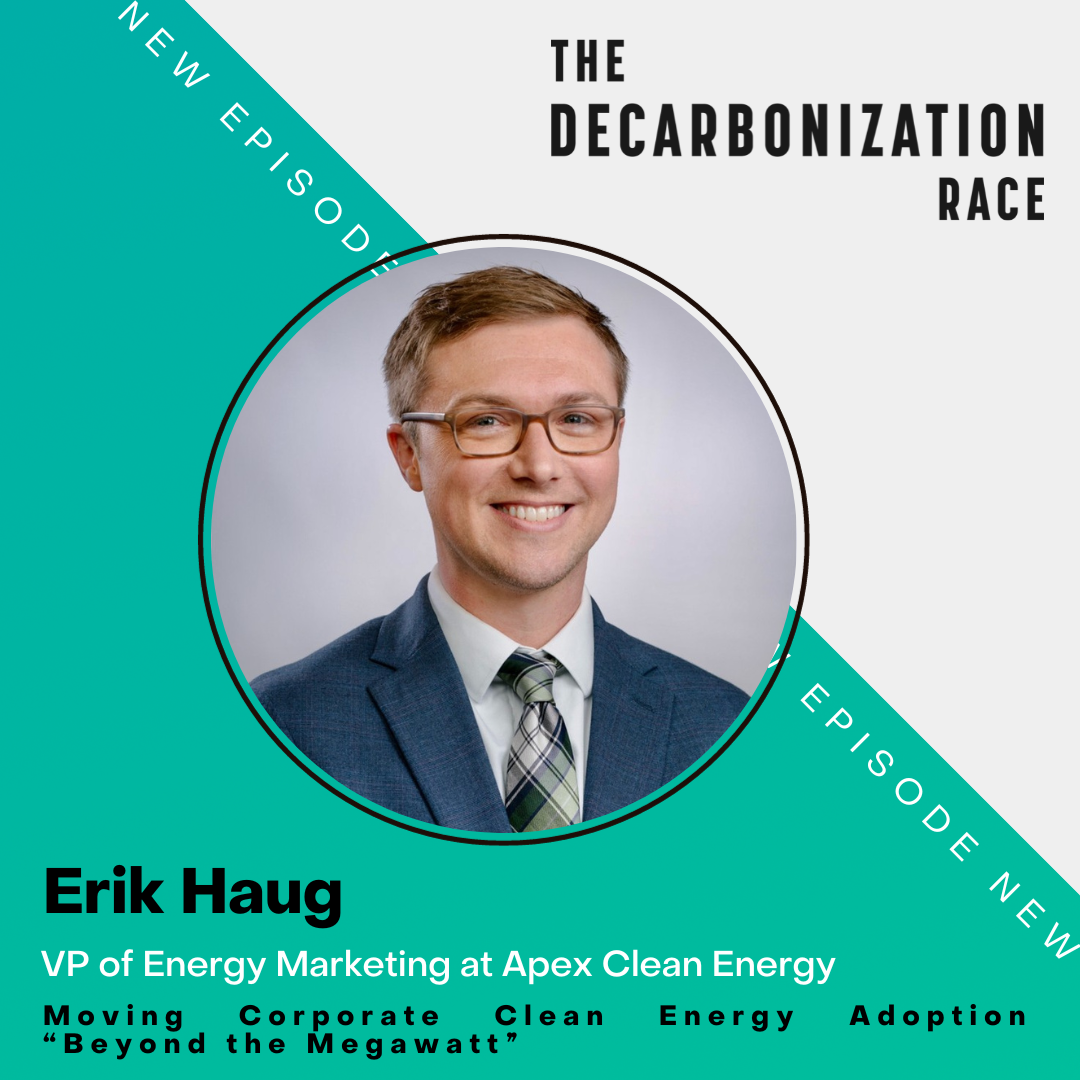
Moving Corporate Clean Energy Adoption “Beyond the Megawatt” with Apex Clean Energy’s Erik Haug
On this episode of the Decarbonization Race, VP of Energy Marketing for Apex Clean Energy, Erik Haug joins our new co-host, Cleartrace Head of Customer Growth Zach Livingston, to discuss Apex’s role in the evolution of the renewable energy space, how environmental, social, and governance (ESG) considerations are shaping decisions around clean energy purchasing, and the complexities of educating consumers and communities to accelerate the growth of renewable power projects. He gets candid about the growing role of battery storage and other forms of dispatchability in Apex’s portfolio as well as how they’re prioritizing looking “beyond the megawatt”.








